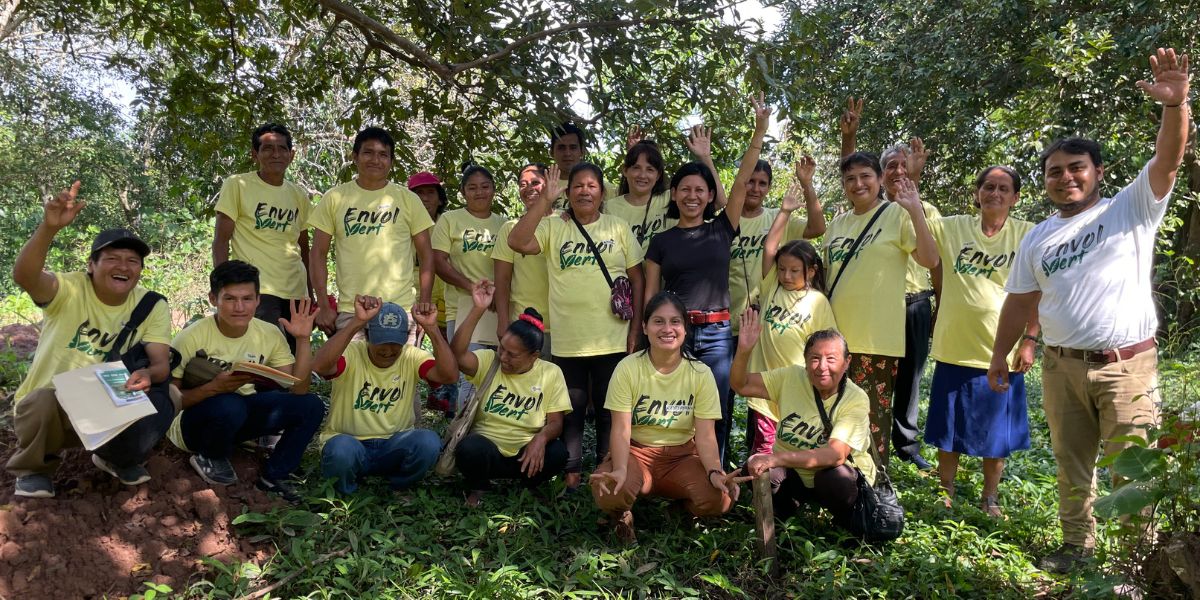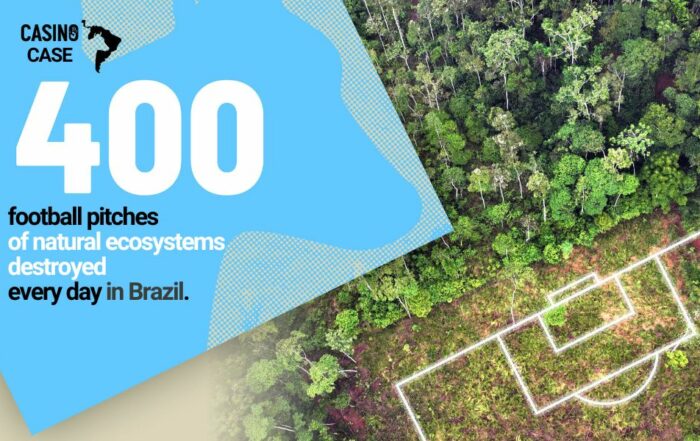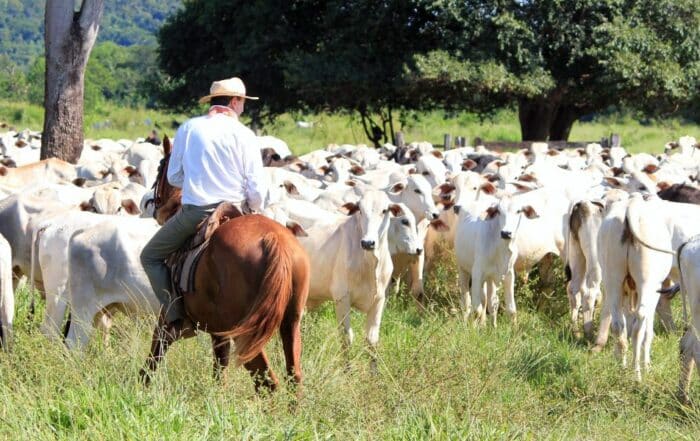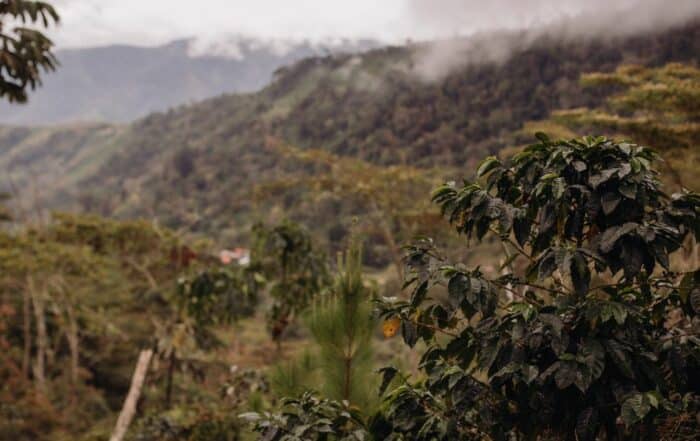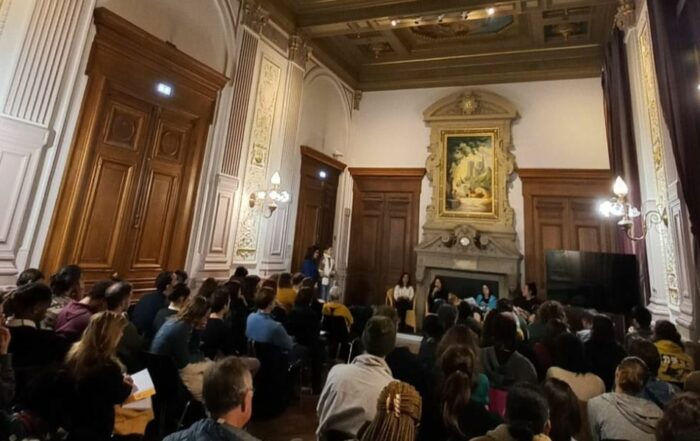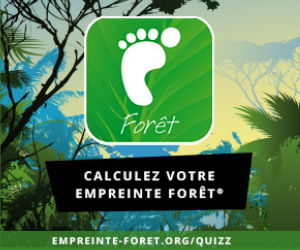On 9 May 2024, the Envol Vert team from Tingo Maria organised a training course at the Peruvian Amazon Research Institute (IIAP). The main themes of the event were formalising entrepreneurship in the sale of native bee honey and increasing knowledge of cocoa pests and diseases.
Promoting the formalisation of the sale of honey from native bees in Tingo Maria
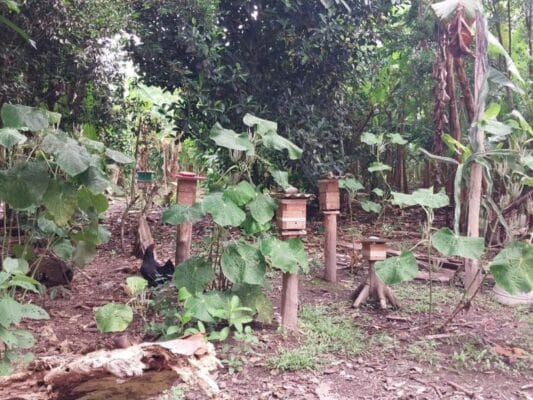
Mr Juan and Mrs Leandra’s plot with 4 hives
of tetragonisca angustula bees © Envol Vert
The aim of this training course was to give participating farmers a better understanding of the steps involved in formalising their economic activity. With the support of the Envol Vert teams, some participants have started to develop a stingless native bee breeding activity, in order to diversify their production and increase their income. It is essential that the participants understand the value of formalising their business and preparing themselves for future honey sales.
Twenty people took part in this training course: ten women, nine men and one child. The participants came from the association’s various working groups located in Pueblo Nuevo, Santo Domingo de Anda and José Carlos Mariátegui.
Trainers with expertise in agronomy, entrepreneurial activity and conservation
For this event, we invited a number of professionals to address issues of importance to farmers. The first speaker, Luz Elita Balcázar Terrones, a DBIO researcher at IIAP, gave a very informative presentation on cocoa pests and the solutions available to combat them.
After a brief refreshment, Clara Sajuri Wong Gonzales, from the Ministry of Production’s National Enterprise Programme, continued the discussion session. Her presentation on the process of formalising a company was both highly instructive and interactive.
We concluded this cycle of reflection with a presentation by Flor Hidalgo Panduro, Economic Alternatives Referent at Envol Vert, on the relationship between bio-economic alternatives and conservation.
Each topic was covered for an hour, followed by a question and answer session. The course was very rewarding, thanks to the knowledge provided by the trainers and the many experiences shared. Satisfied with the course, participants left with a range of information documents that they can share with their friends and family.
On 9 May 2024, the Envol Vert team from Tingo Maria organised a training course at the Peruvian Amazon Research Institute (IIAP). The main themes of the event were formalising entrepreneurship in the sale of native bee honey and increasing knowledge of cocoa pests and diseases.
Promoting the formalisation of the sale of honey from native bees in Tingo Maria

Mr Juan and Mrs Leandra’s plot with 4 hives
of tetragonisca angustula bees © Envol Vert
The aim of this training course was to give participating farmers a better understanding of the steps involved in formalising their economic activity. With the support of the Envol Vert teams, some participants have started to develop a stingless native bee breeding activity, in order to diversify their production and increase their income. It is essential that the participants understand the value of formalising their business and preparing themselves for future honey sales.
Twenty people took part in this training course: ten women, nine men and one child. The participants came from the association’s various working groups located in Pueblo Nuevo, Santo Domingo de Anda and José Carlos Mariátegui.
Trainers with expertise in agronomy, entrepreneurial activity and conservation
For this event, we invited a number of professionals to address issues of importance to farmers. The first speaker, Luz Elita Balcázar Terrones, a DBIO researcher at IIAP, gave a very informative presentation on cocoa pests and the solutions available to combat them.
After a brief refreshment, Clara Sajuri Wong Gonzales, from the Ministry of Production’s National Enterprise Programme, continued the discussion session. Her presentation on the process of formalising a company was both highly instructive and interactive.
We concluded this cycle of reflection with a presentation by Flor Hidalgo Panduro, Economic Alternatives Referent at Envol Vert, on the relationship between bio-economic alternatives and conservation.
Each topic was covered for an hour, followed by a question and answer session. The course was very rewarding, thanks to the knowledge provided by the trainers and the many experiences shared. Satisfied with the course, participants left with a range of information documents that they can share with their friends and family.

